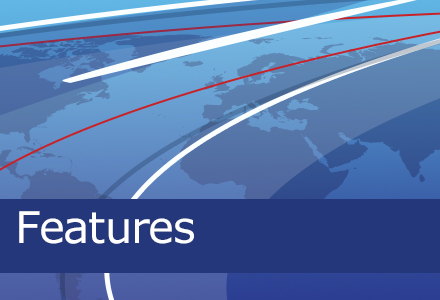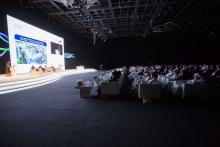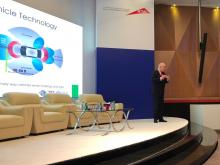
The
Dubai is the perfect host city for this event, especially in light of the Road & Transport Authority’s (RTA) ambitions to offer advanced transport sector services technologies to support Dubai’s growth plans through policies and legislations, innovative approaches, and world-class practices and standards. Thanks to the vision of its leaders, Dubai has succeeded in raising the roads sector to the next level to meet the city’s growing urbanisation, and contributing to the UAE’s global ranking as number one in the quality of roads over the past four years.
A connected and autonomous future
RTA leadership recently reaffirmed Dubai’s self-driving strategy, which aims to convert 25% of the total trips to self-driving trips by 2030, making self-driving mobility a reality. Headline-catching announcements, such as the presentation of the world’s first autonomous aerial manned vehicle, or plans to connected Dubai with Abu Dhabi through a scheduled Hyperloop service have served to reinforce the message. Dubai has also started experimental operation of autonomous vehicles and small buses, and a trial run of autonomous boats.
These pilots aim to advance understanding the host of deployment challenges for Autonomous Vehicles (AVs). One of these challenges relates to infrastructure adaptation, given the absence of global consensus on the design characteristics and associated traffic management functions. How will the state of the road asset affect the predictability of autonomous navigation features? How will AVs process temporary disruptions such as work zones? Will tiered traffic control be required when AVs and traditional vehicles co-exist on the same roads? What is known about the impacts of AVs on urban planning decisions?
As a global tourism and business centre that is home to 190 nationalities, Dubai’s willingness to tackle these challenges head-on makes it an ideal setting to gather consensus around these crucial questions during IRF’s Middle East & North Africa Regional Congress.








